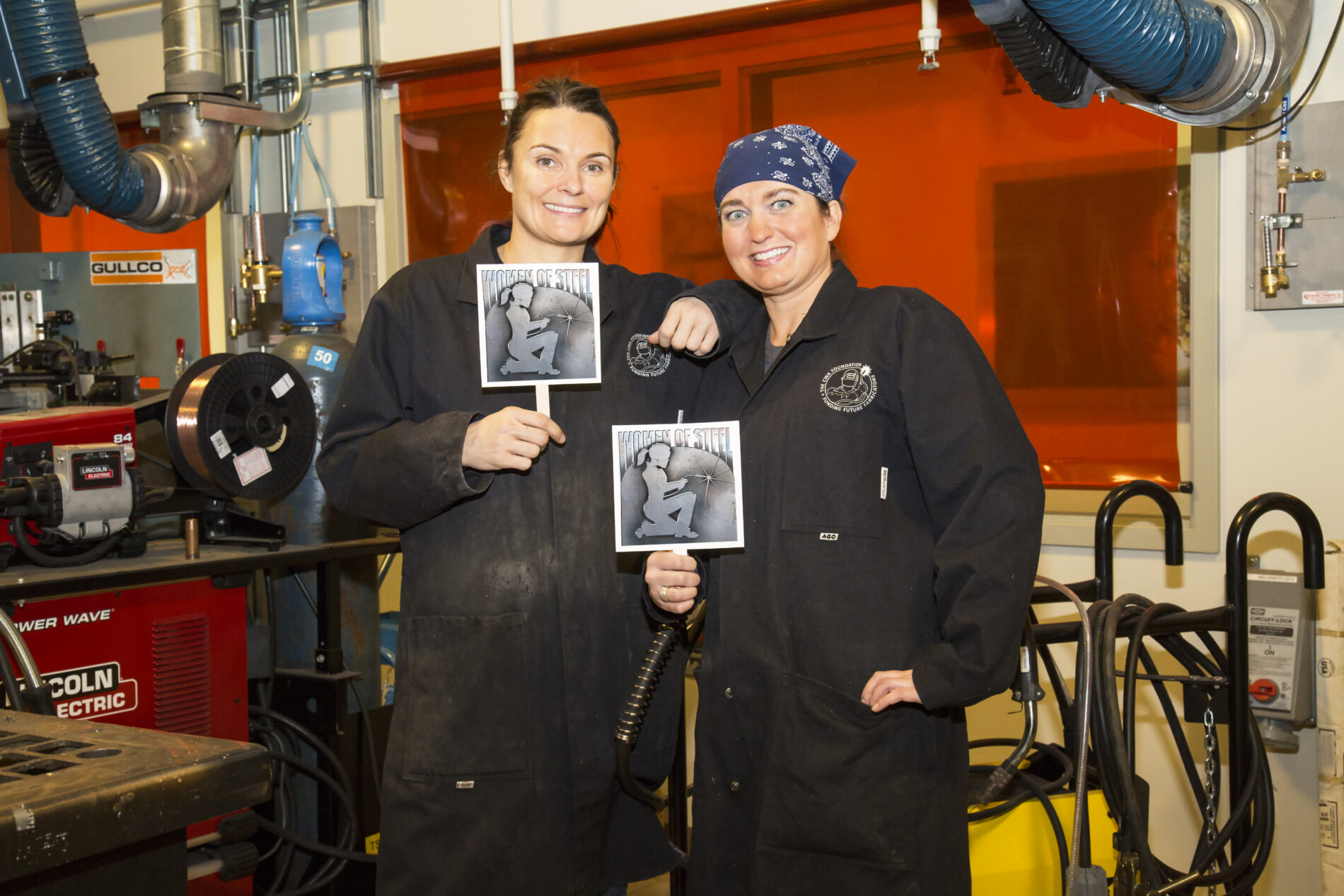
When did you start working for Lincoln Electric®?
I started with Lincoln Electric a little over a year ago. This is the first company I’ve worked for in this industry. I initially started out at university and got an Arts degree. However, I always felt like I was more of a hands-on person so a career in the trades was always at the back of my mind but my parents continued to encourage me to pursue post-secondary education at a university level. When I got to my final year and tried to figure out what I would do for an actual career, I went back to the trades as a career option. I remembered taking a welding course in high school and really enjoying it so I began researching different college programs and discovered the Welding and Robotics program at Conestoga College. I as intrigued by what I learned about the program and ended up enrolling in it. The three years in the program gave me the fundamentals for hand welding as well as robot programming plus many other types of welding. This became the benchmark for when I began looking at careers after college; I didn’t want to focus on just one section of the industry because I wanted to dabble in different aspects of it. I felt that something in sales would give me a better look at a little bit of everything and that’s how I ended up in sales in the industry.
What is the process of becoming a Technical Sales Representative at Lincoln Electric?
When becoming a Technical Sales Representative for Lincoln Electric, the training occurs at Lincoln Electric’s factory in Cleveland for nine months. Here, we’re taught how to weld with different processes, consumables and understanding the ins and outs of the equipment that we will be working with. This gives us a wide view of the welding world because it helps us sell the product but we’re also taught how to use it effectively. When I came to Calgary, technical sales included selling and providing technical support. For example, if a company is having issues with a product, we’re called upon to troubleshoot the issues and help them learn how to troubleshoot on their own if that is of interest to them. We also provide training classes at our facility where organizations can learn more about the machinery being used.
Do you work with a lot of other women?
I’m actually the only woman out of the Calgary office. There’s another female sales representative in Toronto making it a total of two. In the Toronto and Mississauga factories, there are lots of women in technical and engineering jobs.
How would you describe your experience in the industry?
My experience has been really positive. I’ve always been in an atmosphere that is dominated by males. At Conestoga College, there weren’t that many women in the course. We started off at four but when I graduated, I was the only woman left. When I entered the workforce, I found that everyone was welcoming and I haven’t come across any major issues that I can recall. My manager is fair and has never treated me any differently and has always been willing to teach.
Do you find that employers are making changes to accommodate women?
I’ve seen quite a few females in the industry and I think there’s been a movement of women and visible minorities towards the industry. I do feel that there’s a significant push in that direction. However, I find women still aren’t fully receptive to the trades; for example, when I started my three year welding and robotics program at Conestoga College, there were four women in total in our first year, some of which may have been taking a one, two or three-year program. In my graduating year, I was the only female to graduate from the three-year program. With a limited number of women entering programs like this, there are not many to hire.
What would your advice be to women wanting to enter the trades?
My advice would be to do what you enjoy and there’s no difference between men and women. It’s the same as anybody else entering the trades; you have to work hard but there’s really no difference between you and somebody else. Welding can be a very detail-oriented process requiring finer dexterity where women have a chance to shine. Something like that would be great for women and it’s a place where women can truly succeed.
What would your advice be to employers that are hesitant to hire women?
I would tell employers to treat all potential employees in the same manner to everyone has a fair chance.

